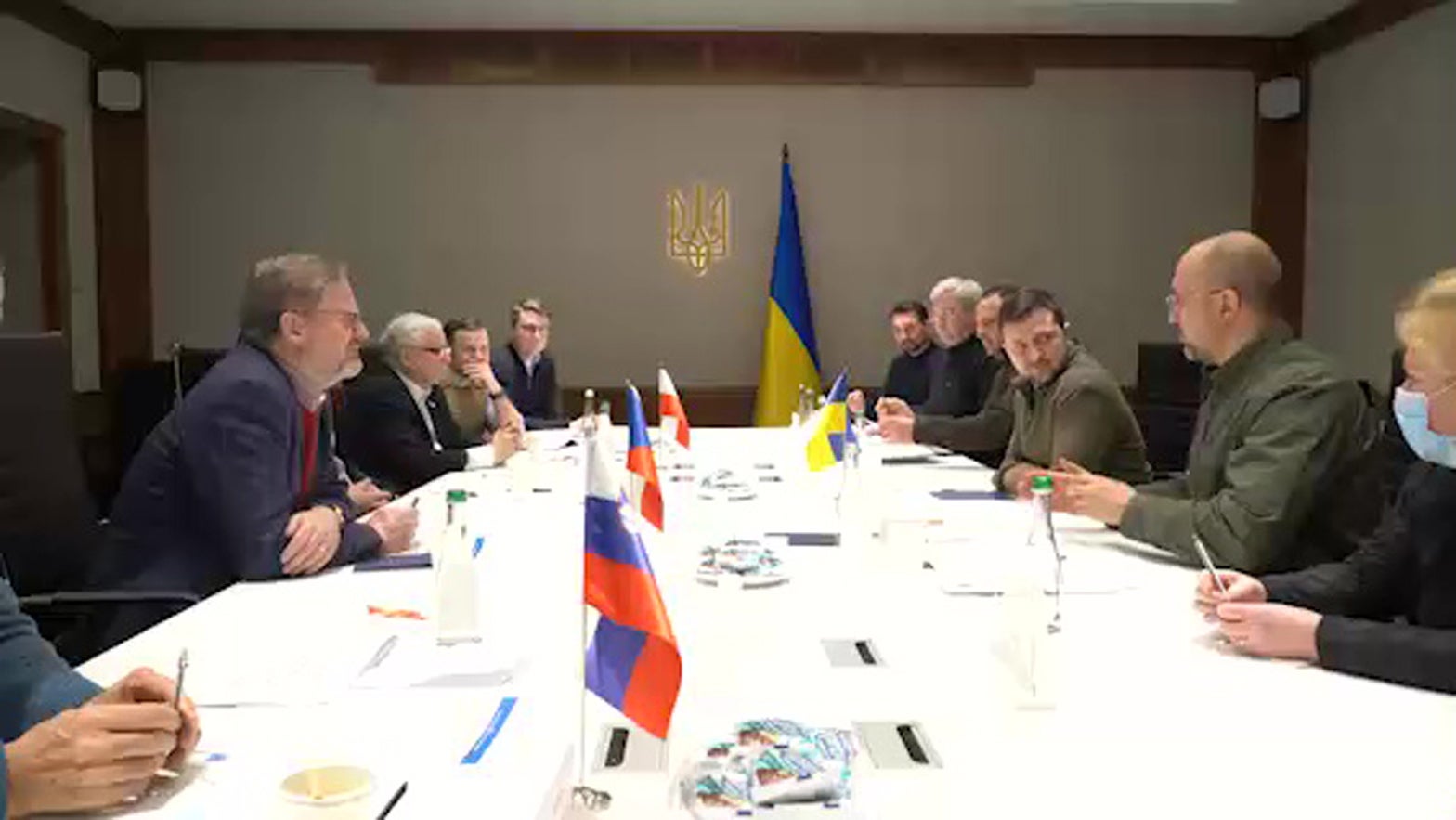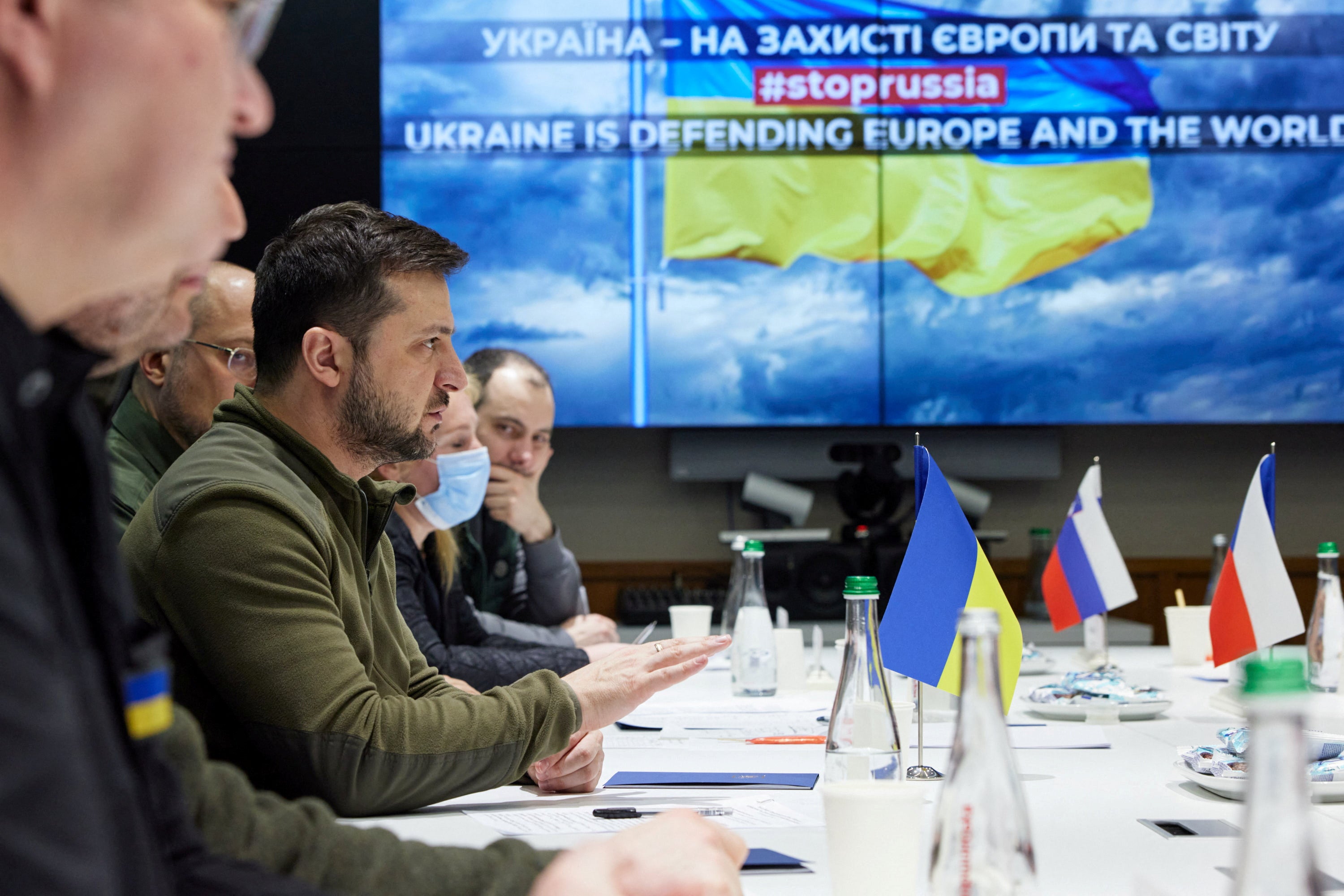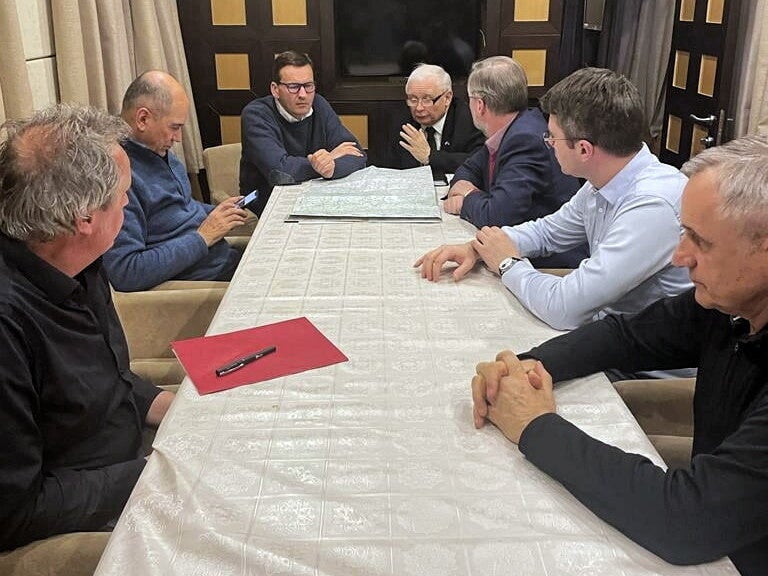Three EU prime ministers arrive by train in Kyiv as Russian attacks intensify
Leaders take perilous trip despite worries within European Union about security risks
Your support helps us to tell the story
From reproductive rights to climate change to Big Tech, The Independent is on the ground when the story is developing. Whether it's investigating the financials of Elon Musk's pro-Trump PAC or producing our latest documentary, 'The A Word', which shines a light on the American women fighting for reproductive rights, we know how important it is to parse out the facts from the messaging.
At such a critical moment in US history, we need reporters on the ground. Your donation allows us to keep sending journalists to speak to both sides of the story.
The Independent is trusted by Americans across the entire political spectrum. And unlike many other quality news outlets, we choose not to lock Americans out of our reporting and analysis with paywalls. We believe quality journalism should be available to everyone, paid for by those who can afford it.
Your support makes all the difference.Three European prime ministers have met with Ukrainian president Volodymyr Zelensky in Kyiv after travelling by train to the capital currently in the sights of the Russian military.
Despite worries within the European Union about the security risks of travelling into a war zone, the leaders of Poland, Slovenia and the Czech Republic took the perilous train trip on Tuesday – as Kyiv residents entered a 35-hour long curfew in response to Russian bombing.
Mr Zelensky expressed gratitude for their visit, which he called a “powerful testimony of support”.
The Ukrainian leader, who it is claimed has seen off more than a dozen assassination attempts, posted a video on Facebook showing him sitting around a table with the three leaders and other officials, briefing them on the war’s developments.
After the meeting, he said he was sure that “with such friends” Ukraine would be able to defeat Russia.
“And most importantly, we absolutely trust the leaders of these countries and, therefore, when we speak of security guarantees, of our future in the European Union, or speak of sanctions policy, we know 100 per cent that everything we are discussing will really lead to that positive goal for our country, for our security and for our future,” Mr Zelensky said.
These comments were separate to those, also on Tuesday, in which the Ukrainian president said that Ukraine should accept it will not become a member of Nato – hinting at a potential key concession to Russia, as one of his aides said there was “certainly room for compromise” in Kyiv-Moscow talks.
Also posting to social media, Poland’s premier Mateusz Morawiecki said: “It is here, in war-torn Kyiv, that history is being made. It is here, that freedom fights against the world of tyranny. It is here that the future of us all hangs in the balance.”

Mr Morawiecki and Poland’s deputy PM Jaroslaw Kaczynski – together with prime ministers Petr Fiala of the Czech Republic and Janez Jansa of Slovenia – said they were on an EU mission.
But officials from the 27-nation bloc insisted that the trio had undertaken the trip independently.
Mr Fiala said the main purpose of the visit was to tell Ukraine it is “not alone”, adding: “Our countries stand by you. Europe stands by you.”
“We know you're fighting for your lives,” Mr Fiala said, “but we also know you're fighting for our lives, our freedom.”

Coming two weeks after Mr Zelensky made an emotional appeal to the European Parliament for Ukraine to be accepted for EU membership, Mr Jansa described the visit as a way to send a message that Ukraine is a European country that deserves to be accepted one day into the bloc.
Mr Jansa – a right-wing populist friendly with Hungary’s Viktor Orban – said the war has awoken Europeans to idea that the bloc represents fundamental ideas that are under threat, and which Ukrainians are defending with their lives.
“Thank you for not only defending your homeland and Europe as a territory, but for defending the very core of European values and our way of life. Your fight is our fight and together we will prevail,” he wrote on Twitter.
All three countries are among those who – four days into Vladimir Putin’s invasion – called on the EU in an open letter “to immediately grant Ukraine a EU candidate country status and open the process of negotiations”.
But last week, after a two-day meeting in Versailles, EU leaders stopped short of fast-tracking Kyiv’s application for membership – instead issuing a statement which merely “acknowledged the European aspirations and the European choice of Ukraine”.
It said Mr Zelensky’s application had been “swiftly” sent to the European Commission for “its opinion”, adding: “Pending this and without delay, we will further strengthen our bonds and deepen our partnership to support Ukraine in pursuing its European path ... Ukraine belongs to our European family.”
Poland, Slovenia and the Czech Republic were all formerly part of the communist bloc, but are each now members of Nato.

Asked about the visit on Tuesday, Nato secretary-general Jens Stoltenberg did not explicitly endorse it but said: “I think it is important that leaders of Nato countries, of European member states, are engaging closely with President Zelensky.”
The visit had been planned for several days but was kept secret for security reasons, Mr Morawiecki’s chief of staff said.
Just hours before the leaders were due in Kyiv, explosions were heard across the city in what Ukrainian authorities said were Russian artillery strikes.
Announcing the new curfew, in force until Thursday morning, Kyiv’s mayor said several apartment blocks were hit by Russian forces based outside the city, killing at least two people. Shock waves from an explosion also damaged a subway station which has been used as a bomb shelter.
Prior to his departure, Mr Morawiecki on Facebook recalled how Poland’s then president Lech Kaczynski had made a visit to the capital of Georgia in 2008 when it was under attack from Russia.
He quoted the late Kaczynski, who at the time told some 150,000 people gathered in Tbilisi: “Today Georgia, tomorrow Ukraine, the day after tomorrow the Baltic states, and then maybe it's time for my country, for Poland.”
Additional reporting by AP

Join our commenting forum
Join thought-provoking conversations, follow other Independent readers and see their replies
Comments